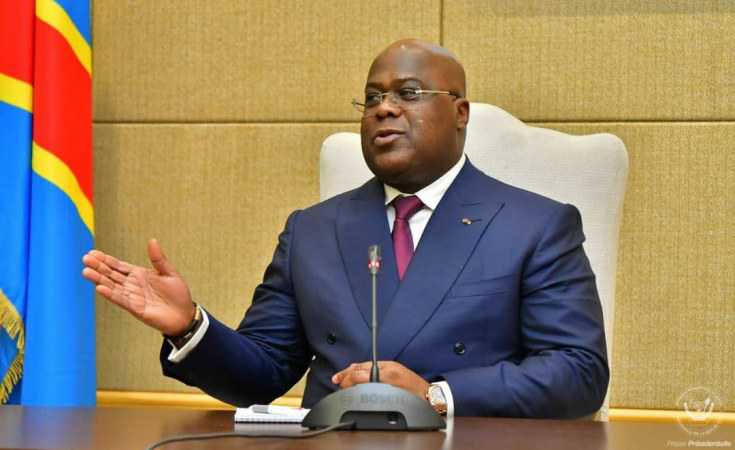Regional
DRC: President Tshisekedi gets international support for political reforms

President Félix Antoine Tshisekedi Tshilombo
The Democratic Republic of Congo (DRC) is currently undergoing political reforms that have seen the break up of the Common Front for Congo (FCC, the coalition formed around forner President Joseph Kabila) and the Cape for Change (CACH, current President Felix Tshisekedi’s coalition) coalition, early this month.
Using the game of numbers in the national assembly, the former president who commanded the majority is said to have made it difficult for president Tshisekedi to make important decisions in his government.
To end the impasse, Tshisekedi carried out consultations with the civil society and political actors including prominent members of the opposition like Jean Pierre Bemba, Moise Katumbi and Bahati Rukwebu. Tshisekedi advocated for unity with other political actors “political forces” in what he called the “sacred union of the nation.”
The former president of the national assembly, Jeanine Mabunda, a strong supporter of Kabila, was voted out of office by 281 of the 484 of the deputies present. The national assembly has a total of 500 deputies.
The ambassador of the European Union in the DRC, Jean-Marc Châtaigner, expressed support of the EU to President Tshisekedi in the ongoing political reforms. In a joint statement signed by EU ambassadors, US, Canada, Japan and South Korea, among others.
“We will continue to support a process of reform to deliver the change the Congolese people seek, notably to strengthen democracy and institutions, combat corruption and impunity, promote peace and security, and build inclusive prosperity,” the statement read in part.
The statement further called on the Congolese people to maintain good faith and engage peacefully in the political process.
Early this year, the United States government announced the restoration of the preferential trade agreement between the Democratic Republic of Congo and the US through the African Growth and Opportunity Act (AGOA).
The arrangement allows Sub-Saharan African countries to export their goods to the US tax free, but with conditions for passing a ‘political litmus test’, on adhering to the principles related to the State of law, political pluralism, workers’ rights and a market economy.
The DRC had lost AGOA privileges in 2010 after the Obama administration accused the country of human rights violations by the Congolese security forces. The restoration of AGOA, therefore, is interpreted as Washington’s approval of Tshisekedi’s efforts to restore human rights and rule of law in the country.
Political analysts believe that Tshisekedi has done a good job in restoring peace and stability especially by rooting out several local and foreign armed militias that have been operating for decades in the eastern DRC.
Tshisekedi is credited for tackling corruption which has crippled DRC economic development since independence. His former chief of staff and powerful politician, Vital Kamerhe, was in June sentenced to 20 years for corruption.
Kabila who has been seen as trying to make political maneuvers to return to state house in the next elections has continued to lose strong supporters in various institutions including the influential private business lobby group the Congolese Business Federation (FEC) which among its responsibilities, regulates the lucrative mining sector.
In recent developments, the long serving chairman of the FEC federation, Albert Yuma, was replaced by a new executive, Dieudonne Kasembo. Yuma who also served as the chairman of the state copper and cobalt mining company, Gecamines, was under pressure by local and international watchdogs for his alleged use of company resources to fund Kabila’s political activities. Both Kabila and Yuma deny the allegations.
Ever since Tshisekedi assumed office, two years ago, political analysts believe that he is a leader who is capable of bringing about meaningful change in the DRC with the resolve to build the country by revamping the economy, fight corruption and bringing about peace in the country especially in the rebel infested east.
The DRC is endowed with vast natural resources; untapped deposits of raw minerals estimated at US $24 trillion, but it is still ranked among the poorest countries in the world, and dependent on foreign aid. This trend can be dramatically reversed, with effective leadership.

